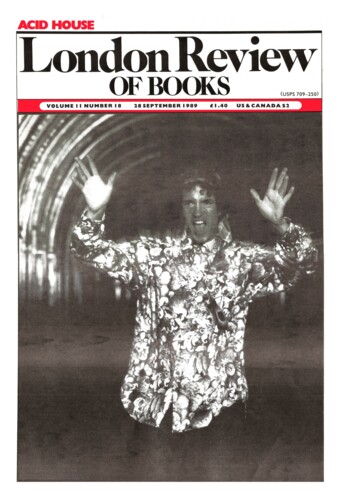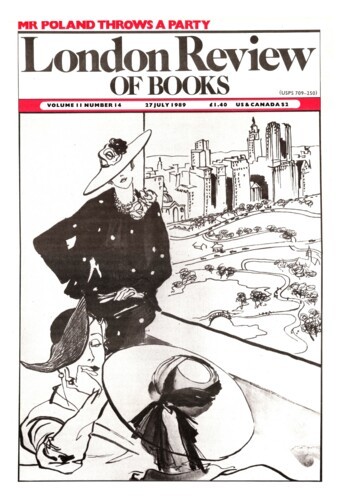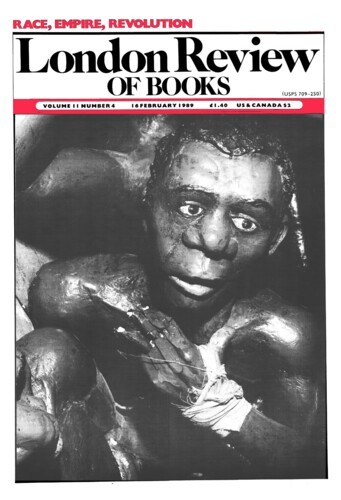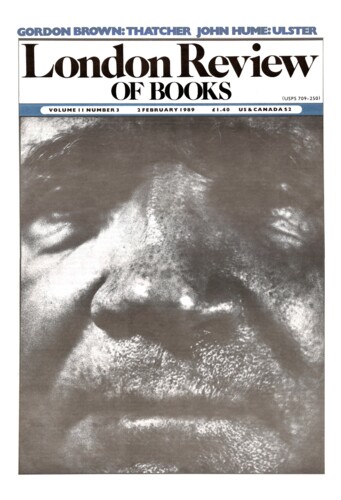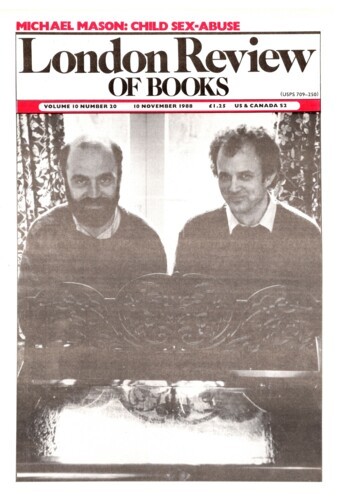Shakespeare the Novelist
John Sutherland, 28 September 1989
According to news reports, Peru is crumbling fast. The unfortunate country’s latest – and possibly terminal – woes began in 1980, after 12 years of military junta, with the installation of civilian rule under President Bealunde Terry. It was a false dawn. Since then, Peru has been afflicted by the hemispheric curses of debt-driven inflation and insurgency. But the violence which is currently destroying Peru is all its own and quite different from narco-terrorism in Columbia, CIA-Contra terrorism in Nicaragua, strong-man terrorism in Panama, or the urban guerrilla terrorism of the Tupamaros. Peru is under siege from a wholly anachronistic but apparently invincible Maoist revolutionary army, Sendero Luminoso – Shining Path. This purist faction sees itself in conflict with the ‘parliamentary cretins’ of the Peruvian Centre-Left (who have had the lion’s share of power in the post-junta years) and the revisionist ‘dogs’ of Moscow, Albania, Cuba and – above all – China as it has backslidden under Deng Xiaoping. The Senderistas own no allies, hold dialogue with no one. According to Nicholas Shakespeare, they accept no funds from abroad and their weapons of choice are stolen guns and hand-made beer-can bombs hurled from slings made of llama hair. Theirs will be one revolution without the AK-47.’
